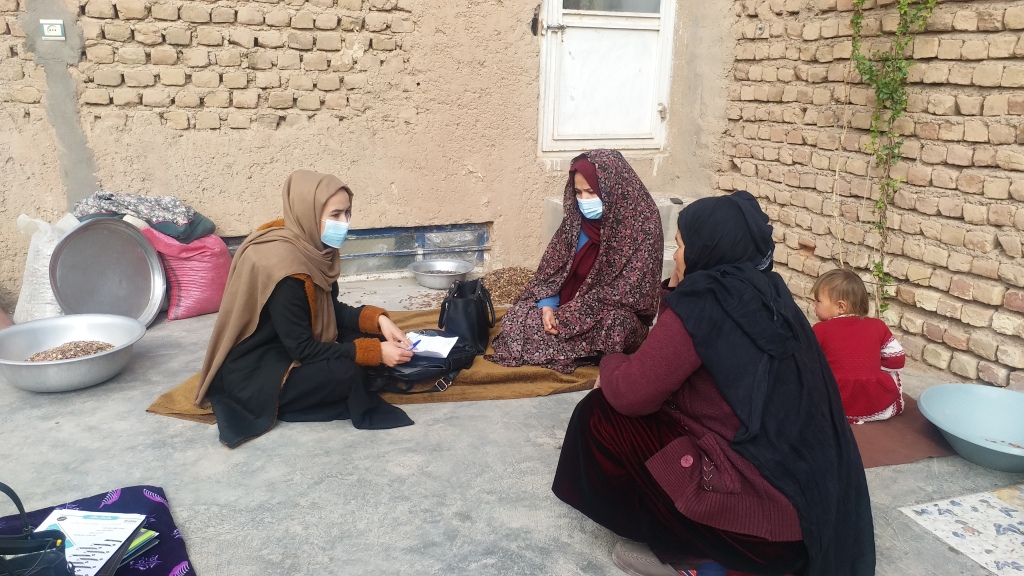“My children were getting weaker by the day. I am unemployed and I have no income to buy sufficient food… I was afraid of losing my children to starvation.”
These were the words of 44-year-old Ayan. One parent’s story. But is it?
Currently, in Afghanistan half the population is living with the fear that there will be days and maybe even weeks without food. And some assistance is being provided by generous people from Australia, Germany, United Kingdom and the United States.
While the Canadian government has provided support through UN agencies, Canadian NGOs and individuals have their hands tied.
It was a year ago that Kabul fell to the Taliban, considered to be a terrorist organization. Many countries cut aid because of this. Quickly, jobs disappeared, leaving thousands without an income. And while their finances were eroding, like much of the world, people in Afghanistan also experienced a surge in fuel, food and commodity prices.
To add to the list of disasters, in June, more than 1,100 people were killed by a magnitude 4.3 earthquake in eastern Afghanistan.
And in a country where half the population is dependent on farming, the worst drought in decades persists in Afghanistan. Wheat production is expected to be down by two million tons. More than three million livestock are at risk of dying, due to lack of feed and water. Families like Ayan’s struggle to find ways to buy or grow food.

While there are thousands of compassionate Canadians who would like to support one of the largest humanitarian crises, Canadian organizations like Presbyterian World Service & Development, Mennonite Central Committee and Canadian Foodgrains Bank and others face significant legal obstacles in assisting Afghan people right now.
Sending aid to Afghanistan risks violating the Criminal Code and agencies could face prosecution and the loss of their charitable status.
To change this, the government must remove these barriers to humanitarian aid. All members of parliament must work together to find a solution Canadian aid organizations have been asking for a path forward, similar to ones found by other countries such as Great Britain and the U.S., a year later a solution has not yet been provided to Canadian agencies.
It may feel a world away for many of us who live here, but for many who had to flee to Canada for safety and security, the pain of watching what is happening to their loved ones feels so much closer.
Sitting in his living room in central Winnipeg, Hayatullah Ansari vividly recalls August 14, 2021, when he was advised to take his wife and seven kids and leave their home in Wardak province, Afghanistan. Toting only a few belongings, his passport and a letter of support from Canada’s military lauding his work as an explosive detection dog handler, the family headed to Kabul, where they boarded a Canadian military plane to Kuwait. In early September, they arrived in Winnipeg, extremely grateful to be safe in Canada.
Even as a refugee working his first Canadian job as a grocery store stocker, Ansari tries to send money to his mother and other relatives each month. He is perplexed that Canadian government restrictions don’t allow people to donate to Afghanis back home.
“The situation is really bad for some people,” he explained. “No hope, no jobs, no money. Now is nothing. They need more.”
Ansari was able to find safety and security in Canada. But for the majority of people in Afghanistan, leaving the country is not an option.
The need in Afghanistan is so huge, that many of Canada’s humanitarian organizations have come together under the banner of Aid For Afghanistan, inviting Canadians to write their members of parliament. The coalition believes that Canadians care about this issue.
Because when aid can be provided, it makes a difference. Ayan was one of the fortunate ones to receive humanitarian cash assistance which allowed him to buy food for his family. And while the Government of Canada continues to deliberate on removing legal barriers, families are going without food and trusted Canadian organizations are unable to respond.
Canadian Foodgrains Bank: Nyambura Githaiga, Senior Policy Advisor
Mennonite Central Committee Canada: Mark Epp, Director of International Programs
Presbyterian World Service & Development: Guy Smagghe, Director
Take action: Send a letter to the Canadian government expressing your support for aid for Afghanistan here.
To learn more about how you can get involved in peace and justice work and to stay informed, subscribe to our newsletter and visit our website here>.
This piece was originally published as an op-ed in the Winnipeg Free Press on August 12, 2022.
